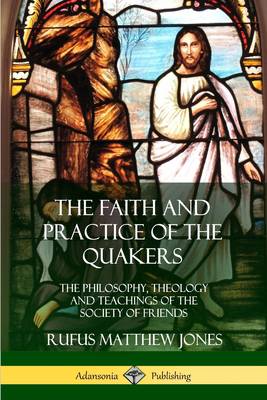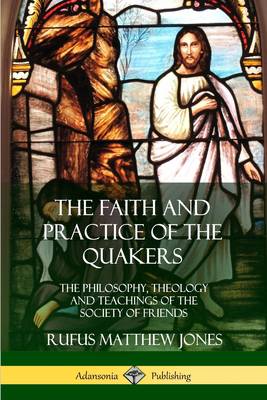
Door een staking bij bpost kan je online bestelling op dit moment iets langer onderweg zijn dan voorzien. Dringend iets nodig? Onze winkels ontvangen jou met open armen!
- Afhalen na 1 uur in een winkel met voorraad
- Gratis thuislevering in België vanaf € 30
- Ruim aanbod met 7 miljoen producten
Door een staking bij bpost kan je online bestelling op dit moment iets langer onderweg zijn dan voorzien. Dringend iets nodig? Onze winkels ontvangen jou met open armen!
- Afhalen na 1 uur in een winkel met voorraad
- Gratis thuislevering in België vanaf € 30
- Ruim aanbod met 7 miljoen producten
Zoeken
The Faith and Practice of the Quakers
The Philosophy, Theology and Teachings of the Society of Friends
Rufus Matthew Jones
Paperback | Engels
€ 14,45
+ 28 punten
Uitvoering
Omschrijving
In this classic text, Rufus M. Jones offers an insightful overview of Quaker history, beliefs and humanitarianism. The Society of Friends was founded in the seventeenth century by George Fox, who could not abide by the teachings of the established Church of England. Convinced that communicating with Christ need not involve a qualified clergyman, he founded the Society of Friends. Many found his approach refreshing, but it also stirred up resentment and resistance in the established Christian order. A defining difference between the Quakers and other denominations is the process by which Friends meet and communicate directly with God. Such spiritual conversation between adherents was immediately different from conventional gatherings wherein a preacher offers the congregation a speech on a given subject. Rufus M. Jones discusses these topics with maturity and respect, drawing upon the existing histories and accounts in a manner certain to sustain the reader's interest.
Specificaties
Betrokkenen
- Auteur(s):
- Uitgeverij:
Inhoud
- Aantal bladzijden:
- 88
- Taal:
- Engels
Eigenschappen
- Productcode (EAN):
- 9780359045952
- Verschijningsdatum:
- 24/08/2018
- Uitvoering:
- Paperback
- Formaat:
- Trade paperback (VS)
- Afmetingen:
- 152 mm x 229 mm
- Gewicht:
- 140 g

Alleen bij Standaard Boekhandel
+ 28 punten op je klantenkaart van Standaard Boekhandel
Beoordelingen
We publiceren alleen reviews die voldoen aan de voorwaarden voor reviews. Bekijk onze voorwaarden voor reviews.











